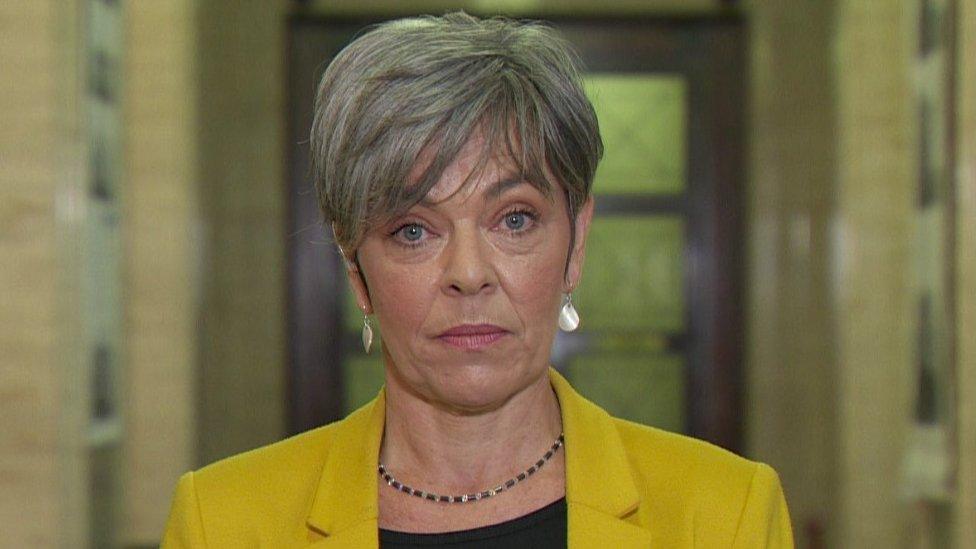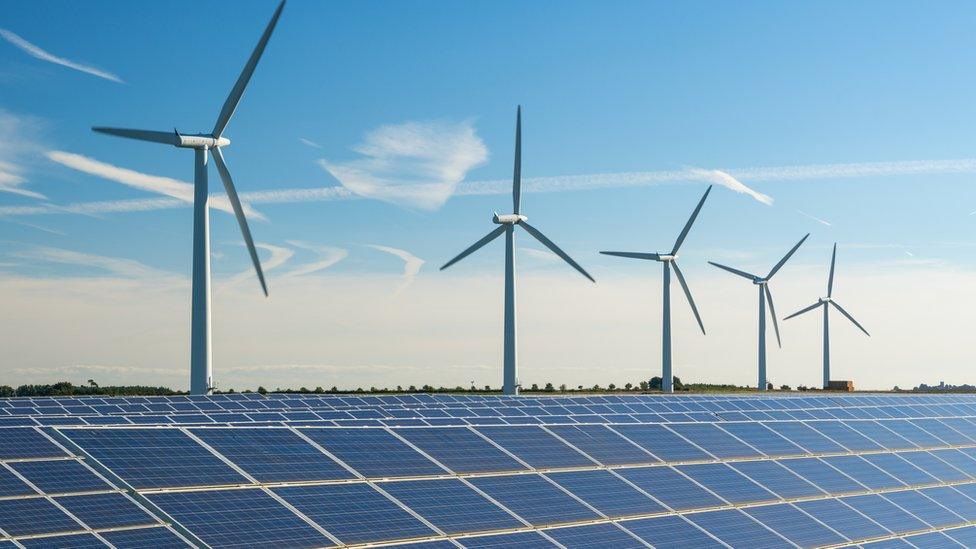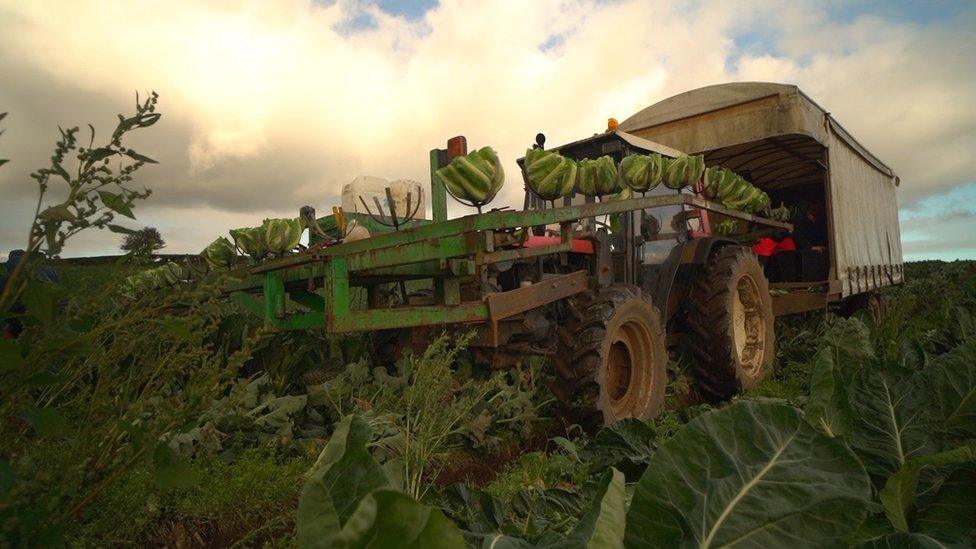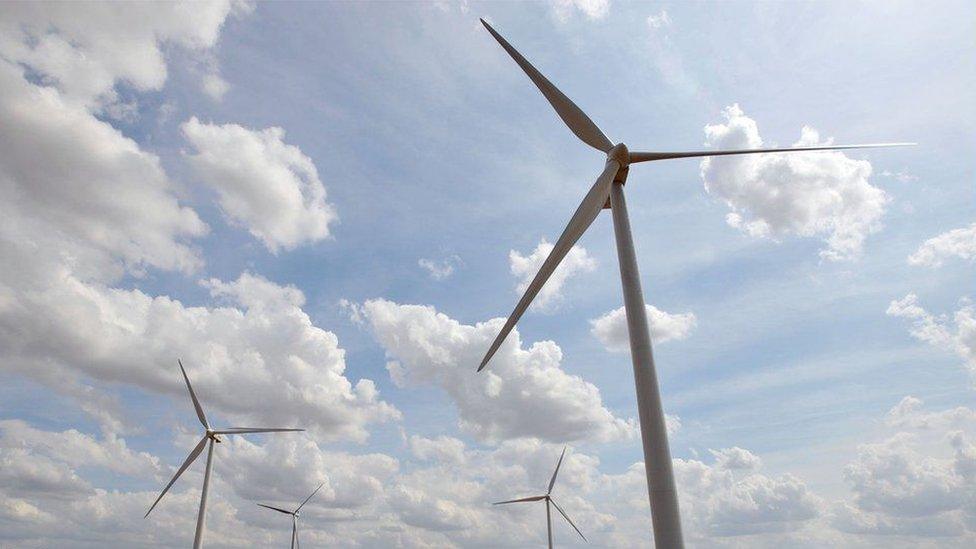Climate change: Stormont backs net zero emissions by 2050
- Published

The agri-food sector has backed Edwin Poots Climate Change bill
Proposals for a target of net zero emissions in Northern Ireland by 2050 have been backed at Stormont after a lengthy debate.
The vote, which passed by 50 to 38, came during the latest stage of a bill to tackle climate change.
The DUP and UUP had vowed to oppose the plan, but it was supported by the Greens, Sinn Féin, SDLP and Alliance.
Agriculture Minister Edwin Poots had argued instead for a target of reducing emissions by 82% by 2050.
He said the decision by most assembly members (MLAs) to support a stricter approach was "not achievable".
The issue was the focus of political disagreement on Tuesday as MLAs debated a series of amendments to Mr Poots' Climate Change (No.2) Bill.
The minister said his bill would tackle the "complex and urgent" issues of climate change, but warned that the targets proposed by other parties were not backed by evidence.

Clare Bailey said the assembly could no longer delay implementing net zero targets
But Green Party leader Clare Bailey, who had put forward the amendment of net zero emissions by 2050, said scientific evidence was clear that the situation was "code red" and that the assembly could no longer delay implementing net zero targets.
The Democratic Unionist Party (DUP), Ulster Unionist Party (UUP), Traditional Unionist Voice (TUV) and independents Claire Sugden and Alex Easton voted against the amendment.
The Greens, Sinn Féin, Alliance, SDLP, People Before Profit, plus Trevor Lunn and Jim Wells voted in favour.
The draft bill can still be amended at a later stage, but will need to become law before the assembly is dissolved ahead of May's election, which means an effective deadline of the end of March.
Earlier, Ms Bailey had hoped to move an amendment to the Edwin Poots bill by bringing forward the target date to 2045.
However, the Green MLA was not in the chamber at the time and was unable to propose an amendment.
She later apologised to the House for not being in the chamber at the right time.
Green Party leader Clare Bailey turns up late for Stormont amendment
Northern Ireland is the only part of the UK without its own climate change laws, but it is contributing to wider UK reduction targets.
In 2020, the Committee on Climate Change, the government's climate advisory body, suggested an 82% reduction by 2050 would be "an equitable contribution" for Northern Ireland to the UK's net zero ambition.
It said the economic reliance on agriculture, Northern Ireland's biggest emitting sector, would make it difficult to go further and faster without a significant reduction in agricultural output.

Northern Ireland is the only part of the UK without its own climate legislation
Agri-food business groups had urged assembly members to back the 82% reduction and reject the proposed amendments to the bill.
The business groups, which include the Ulster Farmers' Union and NI Food & Drink, have said a net-zero target would lead to the livestock sector becoming a "cottage industry" and would mean "large job losses in food processing".
David Brown, deputy president of the Ulster Farmers' Union, said he was "particularly disappointed" and said the targets would have "severe implications".
Friends of the Earth NI had said, however, that it was essential that the Poots bill be strengthened "to play its part in tackling the climate emergency".
Discussions on other aspects of the bill will resume in Stormont on Wednesday.
- Published31 January 2022

- Published2 January 2022

